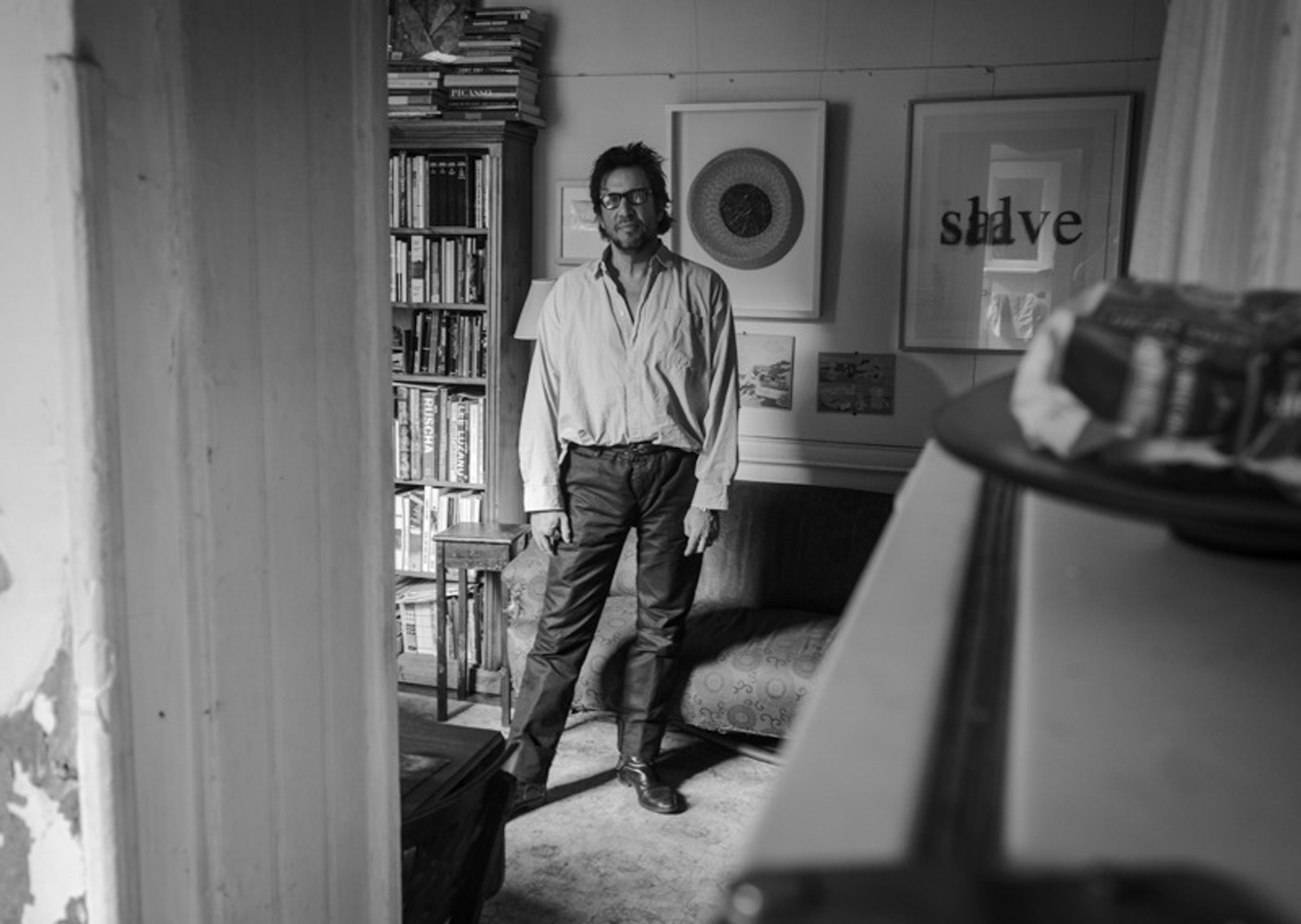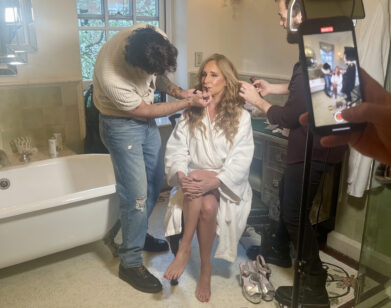The Circles of Richard Hell
Today, 36 years after putting out Blank Generation, New York’s seminal punk rock record, Richard Hell releases an incredibly honest book reflecting on his youth and his time with bands The Heartbreakers and Richard Hell and the Voidoids. I Dreamed I Was A Very Clean Tramp is a glimpse into one of New York’s most mythic eras—the late ’70s and early ’80s—and Hell’s role at the front and center of it. In his seasoned writing style, Hell describes the intricacies of coming of age in dirty tenement apartments, moving from job to job, and being in one of the best punk acts on the scene. We sat down in a fifth-floor apartment in the East Village, where Hell wrote his book, to go over some of the trials of putting together one’s own memories.
ADAM O’REILLY: How long did you spend writing this out?
RICHARD HELL: I didn’t know what to expect. The process was a long, lonely slog that I started in 2006 after my last book came out. I did some other things in between that and this book, the Psychopts book that I did made with Christopher [Wool]—that was a major project, we met every week to work on it. Though still my main thing was this book. I would wake up every morning and attack it to the best of my abilities, but I didn’t anticipate how hard it was going to be. I thought it was going to be easier than a novel—I had all the subject matter—but I got that wrong.
O’REILLY: You had the subject matter, but how much research did you do into your own history?
HELL: In that way, it was convenient. I have all that material—especially during the music years, there was so much of it. I am a bit of a pack rat and kept copies of interviews and press releases; all of that is now at the Fales Library. Also, my mother is even more compulsive than me in keeping things, and as she has aged, she has become more Buddhist and wants her house empty, and what happens is she sends it to me—I have my homework from the fifth grade, report cards. [laughs] I also kept journals from the time I was 17, so I can always substantiate—my journals really showed what was going on, they always caught the mood.
O’REILLY: How did you go through the process of deciding what to keep in and what keep out of the narrative?
HELL: That was relatively easy, because I just followed what arose in my mind as I went chronologically. I didn’t start with a chart of everything I have ever done. I just started at the beginning and went where my memory and impulses took me.
O’REILLY: I think, due to your methodology of writing as you remember, there was this great foreshadowing in the book, little bits of memories coming through as you write.
HELL: There are parts in the book where I completely depart from that, though. There is that whole chapter that is written in the moment, describing walking crosstown to where my grandmother lived. There was a little bit of shuffling it around—I had to decide the best position for a chapter like that. But if something came to me as I was writing, I would just follow the association and keep writing. I figure that is also autobiographical, it’s the shape of my own mind, trusting my instincts as I try to tell the story of what I have seen and what I have been through.
O’REILLY: Why the decision to end the book in 1984?
HELL: There were a couple factors; I describe a lot of intimate stuff in the book and also included unvarnished descriptions of people and experiences. I realized the closer I got to the present, the more difficult it would be, because I would be talking about people that I am close to, and they could be hurt. Things that are nearer to the present, people are more sensitive about. If I am talking about something that happened 30 years ago, they aren’t as sensitive about it, because they think of that as being in their own past, and you won’t offend people because they have changed. It seemed really natural [to end it] where I did—my life changed pretty radically at that point: it became more dull [laughs], more interior. I left music and gave up drugs at the same time, and in the next few years I had committed myself to making a life as a writer. That isn’t as juicy or dramatic as having a band.
O’REILLY: Recalling all of these old memories, did any regrets come up?
HELL: Well, I know a lot of things I could have done better, but that happens every day. I do think I did my best all along, and I don’t have the feeling of regret. I also feel like it’s kind of meaningless to consider any alternatives to things that happened in the past. It’s over; maybe you learn something from it.
O’REILLY: What set this book in motion for you?
HELL: A few things. When I was in my 40s, which was 20 years ago now, I started feeling bewildered and groping for a handhold, a grip on what it means to outgrow your youth. That entails looking back. The only way to answer that question was to write. If you try to make a work that is faithful to the memories as best you can, you can understand those memories better; it adds up. I never thought I would do it. In fiction, it’s another version of the same process; taking what is inside of you and putting it outside of you. I also had to ask, “How much of what I am doing is self-serving?” You have to do your best to not just put the spin on this to make yourself look better. The other thing was that it was time to write another book, and I had to figure what the hell was I going to write.
O’REILLY: This was perfect, then—you didn’t have to write the plot.
HELL: I am not very good at making up plots. [laughs] I have come up with ways to avoid writing plots in my previous two novels. One was a road-trip book where basically the progression is from one place to another in a car. The second one uses a preexisting story as a point of departure for the basic structure, I totally riffed on it. Then I had to come up with something else. Instead of beating the system, I kept with the method.
O’REILLY: I saw you are doing a book tour down the West Coast; was that your choice?
HELL: Yes, these days they don’t happen very often. I’m glad the publisher put it together—I asked them to do this traditional tour. It is work, but at this scale, I am looking forward to it. I fly to Seattle, I rent a car and have hotels all booked, and I drive down [State Route] 1, on the cliff side. Get some butterflies [laughs] all the way down to San Francisco.
I DREAMED I WAS A VERY CLEAN TRAMP IS OUT TODAY. FOR MORE ON RICHARD HELL, VISIT HIS WEBSITE.







